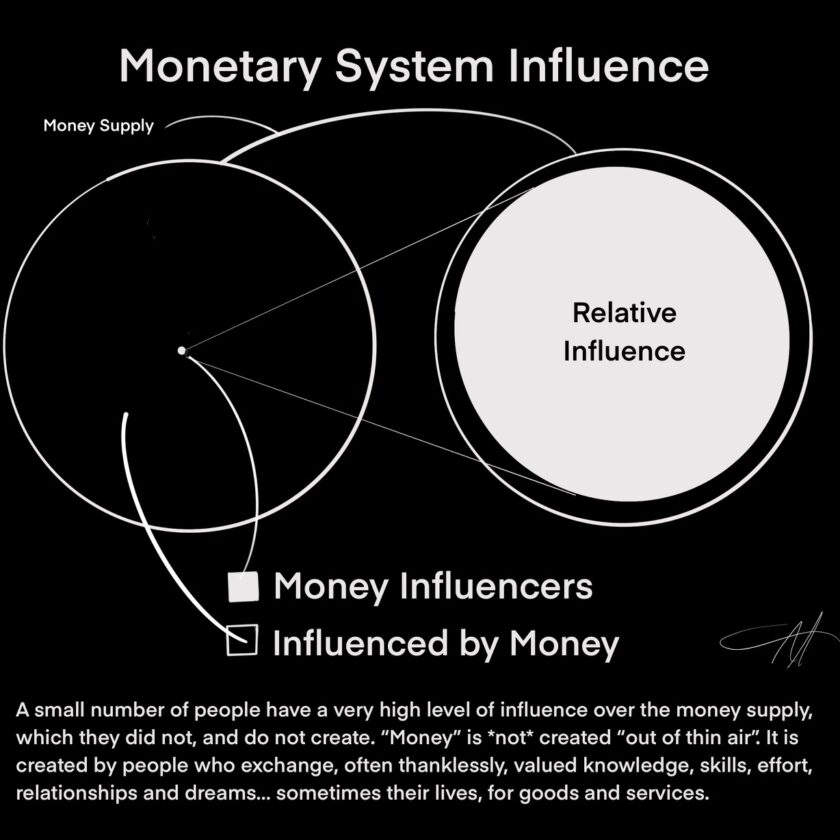After a friend of mine read my previously posted essay, “Why Race Matters… NOT!” we had the following email exchange. His statements, presented in their entirety, are indented:
Re. your response: You make a very convincing argument in describing the possibility for a group of people who grace the shores of America only to “face all the racist oppression that this society could dish out and prospered anyway. Further, you state “they prospered because they were determined to do so. It was their goal”.
Again, I’ll say your argument is very convincing – and would probably be suitable for all races who graced the shores, except for those who today are called African-Americans.
Well, this is consistent with black folk insisting that they, and their situation are different (and why they insist on being treated differently, which is fraught with more “minuses” than “pluses”). However, by maintaining this position, we also remain disconnected from being our own solution.
Hear me out.
Okay, I’m listening.
Like Cornel West, given the racism in America, I favor a class based affirmative action in principle. Yet at the heat of battle in American politics, a redistributive measure in principle with no power and pressure behind it means no redistributive measure at all.
I have more to say about class-based affirmative action below.
The prevailing discriminatory practices during the sixties, whose targets were working people, women and people of color, were atrocious.
Yes, they were.
Thus, an enforceable race-based – and later gender-based – affirmative action policy was the best possible compromise and concession.
We’re no longer in the sixties, a fact you clearly know, but warrants saying. I understand the rationale of legal enforcement, given the vigor that resistance to racial integration took in many places, during those days. But we’ve had a generation of experience under our collective belt, living, working, and even loving together inter-racially; openly intertwining our lives in ways that were only whispered about even 40 years ago. This fact is rarely taken into consideration by proponents of affirmative action policies. It’s time to acknowledge that the way things are now are certainly not like they were. And if we acknowledge that change has indeed happened, we can’t go back to the way things were.
Yet, as long as we think that “the laws” are responsible for making these changes, then we become slaves to them. We lose the very same self-knowledge that the kids who think they won’t get a fair chance without unfair racial preferences, also lose. We don’t get to know ourselves, how far we have really come, and can really go.
Given our country’s history, and the KNOWING that we can rise to any challenge, black people should be champions of fairness and equality, not proponents of reverse racial preference. Martin Luther King certainly sought equality (of treatment under the law), as did Frederick Douglass, and many others. Today, Ward Connerly is vilified by many black “leaders” for championing equal treatment of blacks and all people, and removing race as a de facto reason to apply preferential treatment. They act as though he is taking away a birthright (when in fact he is trying to give them something, an environment that accommodates their best effort without producing an ongoing residual racial stigma).
Black folk should not concern themselves with trying to “keep up” with the JONESES (white, black, or anyone else), in my opinion. The rise of “diversity” politics and language are in essence, re-branded redistribution practices that compensate for chronically substandard performance by black folk. In the beginning, “equal opportunity programs” were a way to quickly gain black representation and involvement in many areas of society that had been arbitrarily restricted by slavery and Jim Crow. But such practices still did not conform to the principle of equality, and they have not achieved what they intended (nor can they ever).
Instead, the perception was born that “the policy helped me do it,” not the individual’s own hard work. Yet, when racial preferences are removed or reduced as a factor, we are left with no other choice but to FINALLY acknowledge the person. Candidates who want to enter schools, or new jobs, will have no other choice but to meet established and accepted standards, or not… They will be included based on their demonstrated merits, or not. Black people will survive regardless.
Lastly, we must come face to face with our own question of whether black people are really capable of meeting standards that others meet without complaint or expectation of favorable treatment simply based on the color of their skin. If you really believe that black people can meet the challenge if a racial waiver is removed, then it’s a disservice to them to advocate allowing a policy to take the credit for their truly earned achievement.
Progressives should view affirmative action (and that’s what I have been talking about) as neither a major solution to poverty nor a sufficient means to equality. We should see it as playing a negative role – namely, to ensure that discriminatory practices against women and people of color (including Chinese) are abated.
Discriminatory practices on the basis of race cut ALL ways, and should be set aside. This means that black racism should be recognized as counterproductive to society, just as much as white racism. Black folk tend to want, and expect a waiver for their racism, not knowing that the habit of maintaining double standards based on race still closes more doors for them than it opens, in opportunities not seen, believed in, nor acted upon.
Given the history of THIS country, it is a virtual certainty that without affirmative action, racial and sexual discrimination would return with a vengeance.
You’re entitled to your opinion, which I acknowledge is shared by others, but it’s only conjecture, for unless YOU would plan on embracing a racist, antagonistic way of doing things, then you cannot predict that anyone else will. We cannot allow the fear of fear to overshadow embracing principles that we know are best for ALL. Our trust must come from within Self. If it does, it will radiate to, and resonate with others.
Even if affirmative action fails significantly to reduce black poverty or contributes to the persistence of racist perceptions in the workplace, without affirmative action, black access to America’s prosperity would be even more difficult to obtain and racism in the workplace would persist anyway.
Listen to where you are placing the power and faith… it’s on affirmative action policies, not on the people that the ideology is intended to benefit and “protect.” You are placing confidence and belief in the ideology, not in the people, even though it may fail to significantly reduce black poverty, or contribute to the persistence of racist perceptions. You are saying that you still believe more in the policy’s power than in that of the people. Said power is basically defined, maintained, and “enforced” by white folk.
This claim is not based upon any cynicism towards my white fellow citizens, rather, it rests upon America’s historically weak will toward racial justice and substantive redistributive measures.
It nonetheless sounds cynical to me, for it anoints white citizens as the active component (with power) in social justice that must be watched and held in suspicion, and blacks the passive component (without power) that AUTOMATICALLY needs compensatory help, and protective shelter from the social storm. I am all for ANYONE getting help who needs it. Their color should have nothing to do with it. You’re talking about class-based remediation, but your justification seems to encompass only black people. Not everyone is in the same boat in terms of their capabilities at any given time; but race is not the cause for action on behalf of one person, and inaction on another, with equal need.
This is why an attack on affirmative action is an attack on redistributive efforts by progressives unlesss there is a real possibility of enacting and enforcing a more wide-reaching “class based” affirmative action policy.
I could support your “class based” affirmative action argument if it were not rooted in racial bias. Arguing for maintenance of the current racial preference system leaves no room for the new one that you propose, to emerge.
In American politics, progressives must not only cling to redistributive ideals (such as racial preference policies), but also fight for those policies.
I disagree. We should disengage ourselves from concepts that ignore the (inherent, implicit, and inalienable) equality of each human being. Slavery was one such concept. Affirmative action, as presently practiced in this country, is another. Both were, and are, a disservice to ALL who embrace them.
Liberals who give only lip service to these ideals, give up precious ground too easily. And they do so even as the sand is disappearing under our feet on such issues as regressive taxation, layoffs or takebacks from workers, and cutbacks in health, child care and education.
Black folk who see continued reliance on affirmative action policies as “necessary”, are contributing to the perception that “governmental massaship” is still necessary. As such, they contribute to the erosion of social freedom by governmental intrusion as much as any “liberal.”
Affirmative action is not THE most important issue for black progress in America, but it is part of a redistributive chain that must be strengthened if we are to confront and eliminate black poverty.
Neither you, nor the government, will ever confront and eliminate black poverty any more than you can confront and eliminate white poverty. The problem is that too many black folk think that the government can actually eliminate their poverty more than they can eliminate their own. And by the way, why the concern over eliminating “black poverty,” but not any other? What responsibilities do you have to a black stranger that you don’t have to a white (or any other color) one? Beyond stranger, what responsibility do you have to anyone other than yourself and family, or anyone to you? (If you do have a responsibility to anyone else, then it should be to everyone else, for they are all human, just like you.)
If there were social democratic redistributive measures that wiped out black poverty, and if racial and sexual discrimination could be abated throught the good will and meritiorious judgements of those in power, affirmative action would be unnecessary.
You seem to be saying that blacks have no power of their own other than that which is allowed to them by “those in power.” Or perhaps you’re saying that the power of a black person pales against the power of a white person… or perhaps the power of “those in power.” In any case, I will lodge disagreement.
Although many may view affirmative action as a redistributive measure whose time is over or whose life is no longer worth preserving, I can only argue with fervor that the persistence of discriminatory practices eg. in the workplace, pose a “glass ceiling” of which only a few can squeeze through while the vast majority of women and people of color remain in social misery.
I would humbly suggest that the persistence of discriminatory practices in the workplace is no reason to justify continuing unfair race-based countermeasures. For all we know, when we begin operating on the principle that inspired so many people to form this nation, the discriminatory practices that you so clearly take issue with, may actually disappear. I cannot say that they won’t, but neither can you say, with such certainty, that by ending race-based preference policies, they will remain, or get worse.
Further, the warranted suspicion that good will and fair judgement among the power brokers does not loom as large toward women and people of color.
Again, you do not seem to include black people among the power brokers. Now, you may be right that those who are perceived to be in power do not include any, or many black people. However, every black person (or person of color) has power, as does every human being (whether they agree with me or not).
When enough black people begin embracing the idea that power is available to them, then practicing it each day, they will reject the notion that an unfair, discriminatory policy achieves something that they themselves created. They will understand that giving affirmative action policies credit for their success is the same as giving white people credit for the successes they have “allowed” blacks to have. Do you really want THIS to be the legacy you leave to our children?
In concluding, the difficult and delicate quest for black identity is integral to any talk about racial equality.
I don’t have any problem knowing who I am, or that I am the equal of any other human being. The problems persist when we think of ourselves as not equal, not whether we have an equal (or proportional) number of cars, homes, CEO positions in the Fortune 500, or amounts of money in our bank accounts.
If WE are fighting to maintain a perceived racial advantage, it simply says that WE think WE cannot compete or achieve without it. It’s okay for “us” to say we need a policy, but when white people are saying it on our behalf, they’re in essence saying that THEY don’t think WE can (or will) compete or achieve without said advantage. Perhaps this perception is okay with you, but it’s not okay with me. But just for the record, I’M okay with “Me”, just as I am, irrespective of how anyone else wants to judge me.
Yet, it is not solely a political or economic matter. The quest for black identity involves self-respect and self-regard, realms inseparable from, yet not identical to, political power and economic status.
I disagree that self-respect and self-regard are inseparable from political power and economic status. The former have nothing to do with the latter, in actuality. However, I do believe that the perceived connection between the two is part of why so many otherwise intelligent people continue rationalizing such an unwise social policy. We’re used to compromising our integrity and honesty for the sake of appearances. Yet, money is not king, and is not the highest power. We are all connected to the ways and means to bring quantum change into our world, but in order to gain access, we must look within our SELF. Affirmative action policies simply work to point our focus — and power — elsewhere.
The flagrant self-loathing among black middle-class professionals bears witness to this painful process. Unfortunately, black conservatives focus on the issue of self-respect as if it were the one key that would open all doors to black progress. They illustrate the fallacy of trying to open all doors with one key: they wind up closing their eyes to all doors except the one the key fits.
Well, I’ve either confirmed your opinion, or shown you some additional doors. 🙂
Thanks for your time and energy.
Adam…




